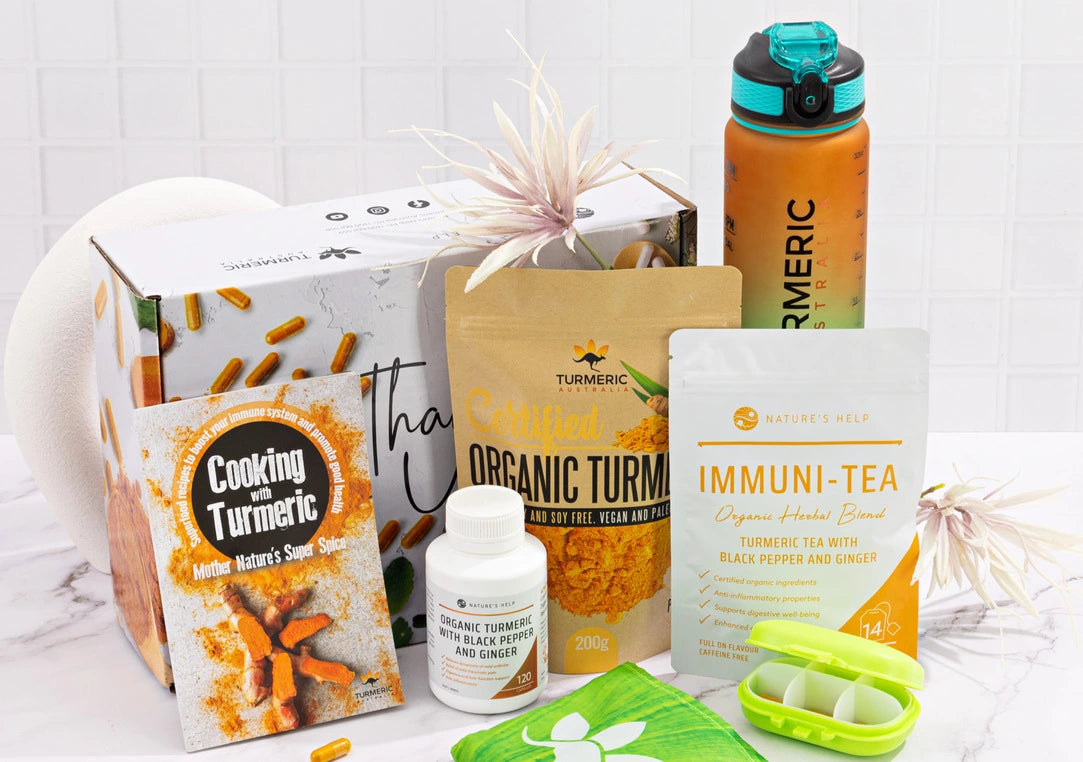From Processed Sugar to Red Meat: Combat Inflammation with Turmeric
Inflammation is a natural response by your body to protect itself from harm, but chronic inflammation can contribute to various health issues, including joint pain, heart disease, and autoimmune conditions. Common dietary choices like processed sugar, red meat, and refined carbs can exacerbate inflammation, leaving your body feeling unbalanced and fatigued. Fortunately, nature offers a powerful solution: turmeric. Packed with the active compound curcumin, turmeric is renowned for its potent anti-inflammatory properties. By incorporating turmeric into your daily routine, you can combat inflammation naturally and support your overall health. In this article, we’ll explore how turmeric works to reduce inflammation and how you can make it part of your wellness journey.

Understanding Inflammation and Its Impact
Inflammation is the body’s defense mechanism against injury, infection, or harmful stimuli. While acute inflammation is beneficial for healing, chronic inflammation can persist over time and harm the body’s tissues. Contributing factors include:
- Diet: High intake of processed sugar, trans fats, and red meat.
- Lifestyle: Sedentary habits, stress, and lack of sleep.
- Environmental Factors: Exposure to pollutants and toxins.
Chronic inflammation is linked to serious conditions such as arthritis, cardiovascular disease, diabetes, and even cancer. Combating inflammation requires a holistic approach, including dietary changes, lifestyle adjustments, and natural remedies like turmeric.
How Turmeric Fights Inflammation
Turmeric contains curcumin, a bioactive compound with scientifically proven anti-inflammatory and antioxidant properties. Here’s how it works:
1. Blocks Inflammatory Pathways
Curcumin inhibits molecules like NF-κB and cytokines that trigger the inflammatory response. By blocking these pathways, turmeric helps reduce inflammation at the molecular level.
2. Neutralises Free Radicals
Curcumin’s antioxidant properties combat oxidative stress, which often accompanies chronic inflammation. By neutralising free radicals, turmeric protects cells from damage.
3. Supports Gut Health
A healthy gut is essential for managing inflammation. Turmeric promotes a balanced microbiome by reducing gut permeability and supporting beneficial bacteria.
4. Enhances Anti-Inflammatory Enzymes
Curcumin boosts the activity of natural anti-inflammatory enzymes like glutathione peroxidase, helping the body combat inflammation more effectively.
Foods That Trigger Inflammation
To fully harness turmeric’s benefits, it’s important to minimise inflammatory foods in your diet. Common culprits include:
- Processed Sugar: Found in sodas, candies, and baked goods, sugar spikes insulin levels and promotes inflammation.
- Red Meat: High in saturated fats and advanced glycation end-products (AGEs), red meat can exacerbate inflammatory conditions.
- Refined Carbohydrates: White bread, pasta, and pastries lack fiber and contribute to inflammation.
- Trans Fats: Common in fried foods and margarine, trans fats increase markers of inflammation like C-reactive protein (CRP).
- Alcohol: Excessive consumption disrupts gut health and increases inflammatory responses.
Incorporating Turmeric Into Your Diet
Adding turmeric to your daily routine is simple and versatile. Here are some ideas:
1. Golden Milk
A warm blend of turmeric, milk (or a dairy-free alternative), cinnamon, and a pinch of black pepper. Black pepper enhances curcumin absorption, making this drink both soothing and effective.
2. Smoothies
Add a teaspoon of turmeric powder to your morning smoothie. Pair it with ingredients like ginger, banana, and spinach for a nutrient-packed boost.
3. Cooking
Turmeric is a staple in curries, soups, and rice dishes. Its earthy flavor complements a variety of cuisines.
4. Supplements
For a concentrated dose, turmeric supplements are an excellent option. Look for products that include black pepper extract (piperine) to improve bioavailability.
Lifestyle Changes to Enhance Turmeric’s Benefits
While turmeric is a powerful ally, pairing it with healthy lifestyle habits amplifies its effects. Consider these strategies:
1. Adopt an Anti-Inflammatory Diet
Include foods rich in omega-3 fatty acids, antioxidants, and fiber. Examples include fatty fish, leafy greens, berries, and nuts.
2. Exercise Regularly
Moderate physical activity reduces inflammatory markers. Aim for 30 minutes of exercise, such as walking, yoga, or cycling, most days of the week.
3. Manage Stress
Chronic stress exacerbates inflammation. Incorporate relaxation techniques like meditation, deep breathing, or journaling into your routine.
4. Prioritise Sleep
Poor sleep is linked to higher levels of inflammation. Aim for 7-9 hours of quality rest each night.
Scientific Evidence Supporting Turmeric’s Anti-Inflammatory Benefits
1. Arthritis Relief
A study published in Annals of Internal Medicine found that curcumin reduced joint pain and stiffness in patients with osteoarthritis, performing as well as some anti-inflammatory drugs without the side effects.
2. Heart Health
Research shows curcumin improves endothelial function and reduces markers of inflammation, supporting cardiovascular health.
3. Gut Health
A study in Gut Microbes highlighted turmeric’s role in promoting a balanced gut microbiome and reducing inflammation in conditions like IBS.
4. Brain Health
Curcumin’s anti-inflammatory effects extend to the brain, with studies suggesting it may lower the risk of neurodegenerative diseases like Alzheimer’s.
Precautions and Tips for Using Turmeric
While turmeric is generally safe, here are some tips to ensure you use it effectively:
- Start Small: Begin with 1/2 teaspoon of turmeric powder daily and gradually increase.
- Pair with Black Pepper: Piperine in black pepper enhances curcumin absorption by up to 2,000%.
- Consult Your Doctor: If you’re on medications like blood thinners or have gallbladder issues, consult a healthcare provider before using turmeric supplements.
Final Thoughts
Combatting inflammation naturally is possible with the right dietary and lifestyle choices. By minimising inflammatory foods like processed sugar and red meat while incorporating turmeric’s powerful anti-inflammatory properties, you can take control of your health and reduce the risk of chronic conditions. Start small by adding turmeric to your meals or trying a golden milk latte, and pair it with other healthy habits for lasting benefits. With turmeric as a key part of your wellness routine, you can pave the way for a healthier, inflammation-free future.

